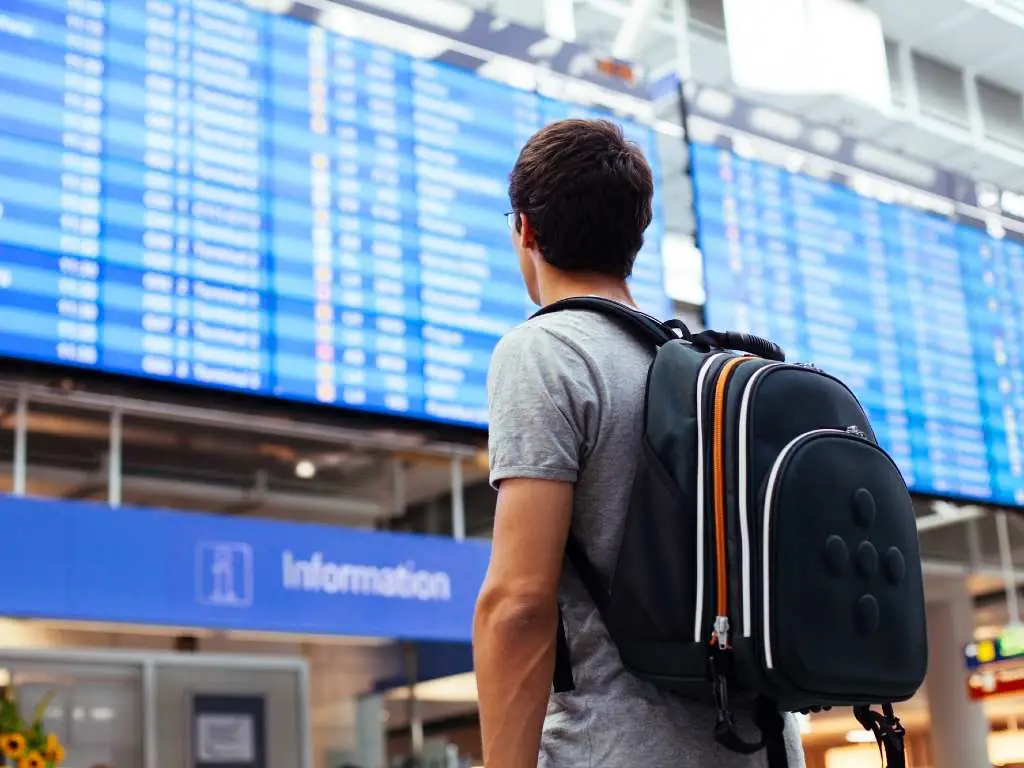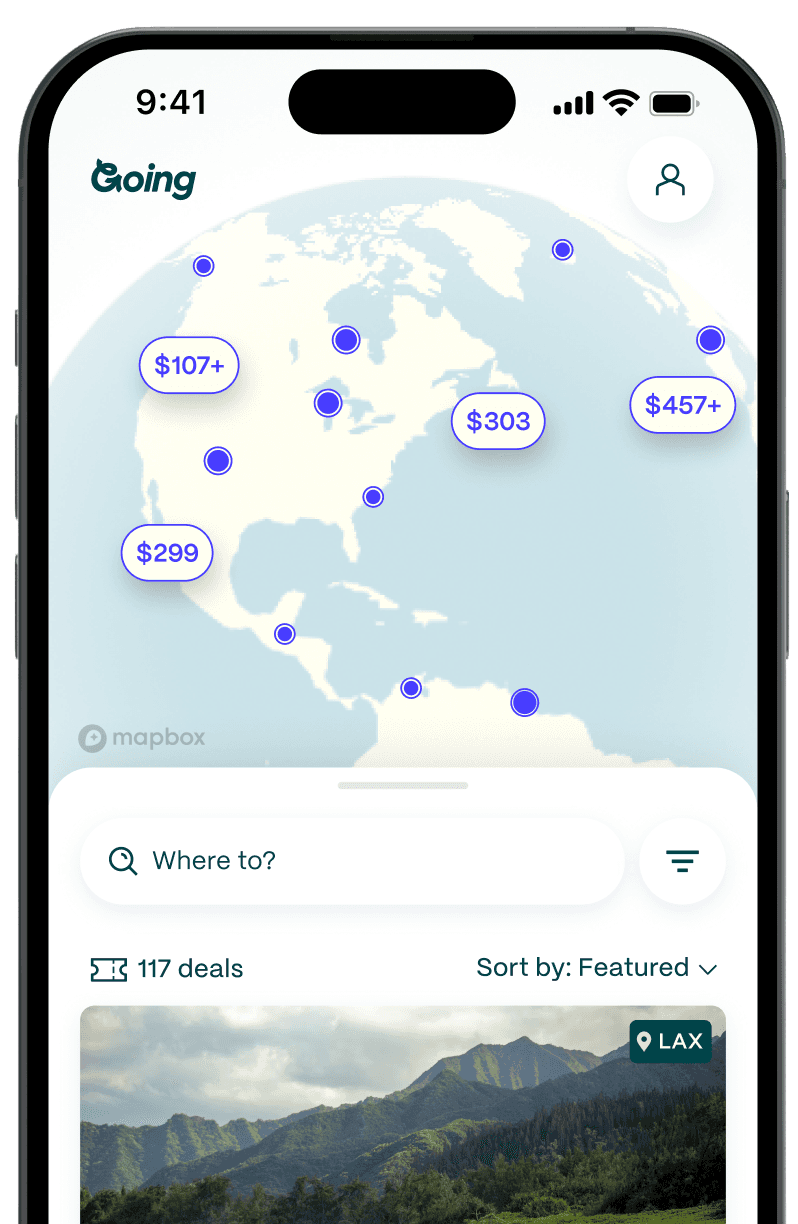
8 Things You Should Research Before Every Trip
Table of Contents
Did you know that in Japan, you can have your luggage transported from hotel to hotel, freeing you up to navigate the train system without carrying bags? Or that in France, it’s pretty rude if you walk into a shop and don’t say hello to the staff? Or that in Thailand, you need to cover your shoulders and knees when entering temples?
Most travelers wouldn’t necessarily know these things, and while you can certainly learn some of these things on your trip, arming yourself with some basic knowledge about your destination in advance can help you avoid a faux pas, stay safe, save money, and have a better experience.

Even if you like to fly by the seat of your pants, here are a few basic things we recommend researching before every trip.
What are the entry requirements for the country?
Americans are lucky; we need visas for far fewer places than residents of many other countries, but there are still places that require American citizens to jump through a few hoops to enter. For some countries, you can apply for the visa and pay the fee when you arrive at the airport, while it must be done in advance for others.
Additionally, some countries have specific rules around minors traveling with only one parent (they may require proof that the other parent approved the travel), and some require proof that you plan on leaving the country (a return ticket usually suffices). Most countries require that your passport is valid for a specific length of time after your trip, usually six months. While most countries have dropped Covid-era restrictions, some require other vaccinations be up to date.
Questions and terms to search:
- Are visas required for Americans traveling to [country]?
- [Country] entry requirements for US citizens
- Traveling to [country] with minors
- Vaccinations required in [country]
What’s the best way to pay for things?
The use of credit cards has spread far and wide, so much so that some countries are virtually cashless. But in other places, cash is still king. It’s always wise to know where the country you’re visiting falls on the spectrum. Should you plan to have access to more cash than usual, or can you skip the ATM altogether?
Don’t forget to alert your bank that you’re traveling (you can usually do this online), and be sure to read up on tipping norms when dining out so you’re not scrambling to figure it out once the bill arrives.
Questions and terms to search:
- Money in [country]
- Credit cards in [country]
- Tipping in [country]
What’s the best way to use a cell phone?
If international roaming isn’t included in your plan, you generally have a few options. 1) Buying a local physical sim card (not practical if you have a locked iPhone), 2) using an e-sim, or 3) using pocket wifi.
Which option to use depends on your phone and where you’re going. For example, in Europe, an e-sim might be the cheapest option, while in Japan, you can rent a pocket wifi device at the airport for a few dollars a day, so it’s wise to look into the pros and cons of each option in the specific place you’re visiting.
Questions and terms to search:
- Using an American cell phone in [country]
- E-sims in [country]
- Pocket wifi rental in [country]
What’s going on during your visit?
No one wants to arrive in a city to find out that the place is virtually shut down for a holiday or that they just missed a once-in-a-lifetime event by a single day. A quick search of what’s happening while you’re visiting can help you avoid disappointment or frustration.
If you’re particularly interested in certain things—live music in Tokyo or a football game in Madrid, for example—be sure to do a targeted search for those events as well.
It can also be helpful to follow the news in the place you’re going for the few weeks before your trip. This will alert you to any potential disruptions like protests or strikes.
Questions and terms to search:
- Holidays in [month] in [country]
- Festivals and events in [month] in [city]
- Weather in [month] in [city]
- Football schedule in [city}
What should you do to keep yourself and your money safe?
Common sense covers many travel safety issues, but some things can vary by destination. There’s no need to be paranoid, but it’s helpful to know whether you can drink the water, what number to call should you have an emergency, and some of the scams commonly tried on tourists in that destination.
Women, LGBTQ+ travelers, and travelers of color may also want to look into specific recommendations to keep themselves safe. The US State Department, Global Peace Index, and LGBTQ+ Equaldex are good resources for understanding the general safety levels of a place, but an internet search will usually bring up some great first-hand information as well.
Questions and terms to search:
- Can I drink the water in [country]?
- Emergency number in [country]
- Common scams in [city]
- Safety tips for [demographic] in [city]
What’s the best way to get around?
Every city has its quirks when it comes to public transport. For example, in London, you can use a contactless credit or debit card to pay for the Underground. In Italy, Americans must have an International Driving Permit (which you can get from a AAA office for $20). And in South Africa, you can’t pump your own gas. Learning the rules of the road—or public transportation—in the place you’re visiting can make getting around easier, cheaper, and, most importantly, safer.
Questions and terms to search:
- Public transportation in [city]
- How to ride the bus/train in [city]
- Driving in [country] or [city]
- Is an International Driver’s License required for Americans in [country]?
- Is Uber available in [city]?
What should you eat?
We don’t just mean restaurants, though we know the foodies among us leave for every trip armed with a Google Map marked with dozens of must-eat-at spots. A little research on the food of the place you’re visiting can help ensure you don’t miss out on tasting an iconic dish. And if you have any allergies, it’s helpful to write down and practice how to communicate that in the local language.
Questions and terms to search:
- What to eat in [city]
- Traditional foods in [country]
What do you need to know to avoid serious side-eye?
In many cultures, it’s very rude to enter someone’s home with your shoes on. In some countries, it’s virtually impossible to find an open restaurant between lunch and dinner. And don’t even get us started on the various nuances of different hand gestures worldwide.
No traveler wants to be offensive by accidentally running afoul of local cultural norms, and while most people forgive a foreigner’s ignorance, just as we recommend learning the most basic phrases in the local language (e.g., hello, goodbye, please, and thank you), we also recommend doing some minimum research to be a respectful visitor.
Questions and terms to search:
- What not to do in [city/country]
- Things you should know before visiting [country]
- [Country] culture
Last updated August 29, 2024









